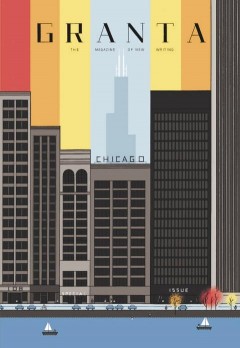Former National Book Critics Circle president John Freeman was officially named editor of Granta today, after several months as acting editor. Freeman was responsible for Granta 108 – Chicago, the most recent issue of the magazine, which was reprinted a week after publication, making it the fastest-selling issue in the magazine’s 30 year history. His book The Tyranny of Email is being published this month.
Q
.What are your plans for Granta?
A
. I’d like to build off our history of discovering new writers, of telling people stories they won’t find elsewhere, and showcasing voices and places which haven’t quite had their due yet. Chicago was a combination of all of the above. This isn’t a radical departure from how we’ve done things in the past. Granta 6, for example, the theme of which was ‘a literature for politics,’ featured a dialogue between two writers, excerpts from an interrogation of Adolf Eichmann, new work by Milan Kundera and Nadine Gordimer, Ariel Dorfman on comics, and part of Gregor von Rezzori’s “Memoirs of an Anti-Semite.” There’s an urgency to all these pieces which you feel now, thirty years later. I’d like each issue of Granta to have that intense, beautifully worked urgency, those unusual collisions of topics and styles. I’d also like our covers to be as beautiful as what comes inside. It’ll be a tall-order to follow-up off of Chris Ware’s Chicago cover, but we’re going to try. We’re also going to continue with themes. Our next ones are work and sex, and both are shaping up very well.
Q
. To what extent will you include American writers in the mix?
A
. Granta was relaunched in 1979 by two Americans, and even though we’re based in London, American writing—the energy of it, the themes that keep recurring—will always be a significant part of the magazine. Our next issue, for example, will feature fiction by Joshua Ferris, reportage by Daniel Alarcon, and several other pieces by Americans. But we also have a story by a British writer (Julian Barnes), an essay by a writer from India by way of Britain (Salman Rushdie), as well as pieces by writers from Sri Lanka, Sierra Leone, China, Kenya, Tasmania, Germany, and elsewhere. Work means different things depending on where and who you are and we wanted to reflect that. Ultimately, though, I think good writing is less about these national categories. We’re in a polyphonic world and that’s the thing I think we need to keep in mind. And there’s something exciting when you put writers from different traditions in the same space.
Q
. How are you shaping the online version of Granta?
A
. We want our online site to be more than just what’s in the magazine, tossed up online. We want it to amplify and expand the issue in ways we can’t do with print.
So for the Chicago issue, we’ve had a few video interviews with the writers in the issue, like Maria Venegas and Aleksandar Hemon; we’ve had a handful of online only pieces. We have an additional photo spread about Chicago up there, links to the sketches Chris Ware did for the cover, and then the odd bit of literary news. It’s more curated these days and that’s thanks to our online editor.
We also want people coming to the site for information, so we’ve used it (and our twitter feed) to broadcast details to our events. For the Chicago issue there was a week of events in Chicago itself, a launch party in New York, and then another week of panels, readings, and a party in London. I think these real world gatherings are important to make an online site interesting.
Finally, the site is the place where people can go if they can’t buy the issue locally. In the coming weeks, we’re going to do some new things with the website with pieces from our archive. We’ll have a new writer in the ‘New Voices’ program, which runs every six weeks. And starting in December we’ll start running previews of our next issue.


